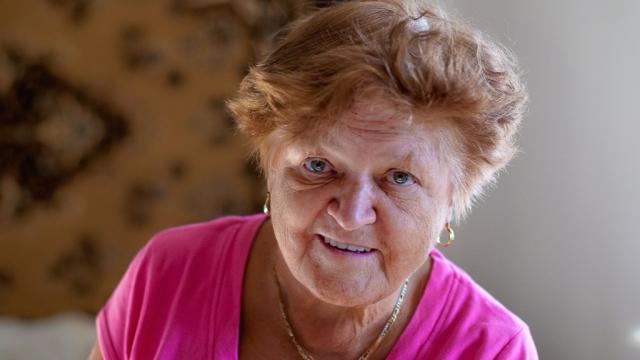Menopause is one of the oddest features of human reproductive biology. Not the hot flashes or the forgetfulness, but the fact that older women lose the ability to have babies. Now researchers say that once it appeared, menopause may have had a ripple effect on human mating that helped create the human pair-bond.
According to a new paper in PNAS this week from a team led by University of Utah anthropologist Kristen Hawkes, menopause could be the evolutionary gateway to romance. The origins of menopause are pretty mysterious: most animals, including other primates and human males, can keep on making babies as they age. And in the evolution game, descendants equal success. Each of your babies is a new chance to move your genes into future generations. So why would we evolve to stop making babies in midlife?
Hawkes is one of a group of scientists who think grandmothers are the key: early humans who gave up childbearing and helped feed and care for their grandchildren wound up with more descendants, outcompeting their babies-till-old-age cousins. This “grandmother hypothesis” is still controversial: behaviours don’t fossilize, so it’s hard to find definitive evidence for or against it. But proponents believe that grandmothering, and the longer lifespan that came with it, could have had widespread effects on human social systems.
Using a computer model to run simulations of human evolution with and without grandmothering, Hawkes and her colleagues found that models without grandmothering developed male-female sex ratios that were female-dominated, similar to the ratios in other primate species. But when non-fertile grandmothers were added to the model, the number of fertile males in the population swelled and stabilised at about 156 males per 100 fertile females. In the model, the shift could take place in as little as 30,000 years. Their simulated ratios roughly matched the sex ratios of chimpanzees (which do not grandmother) and human hunter-gatherer societies (which do).
So early human societies had more fertile males than fertile females. As lifespans got longer, the pool of older males competing for younger, fertile females got larger. Eventually, Hawkes says, males that held on to the mates they already had wound up fathering more children than the males who kept looking for someone new. According to Hawkes, “There are too many other guys in the competition. The more males there are, the more their average reproductive success goes down.” If their model is right, the most successful males were the ones that formed stable bonds with one or a few females, and these eventually evolved into the special romantic relationships we have today.
And if that’s true, it also means that grandmothering created the environment for romantic cheating. Our nearest primate relatives mate promiscuously: males mate with many females, and females mate with many males. In that environment, who cares who’s mating with who? But once humans evolved special paired relationships, it became possible to dally outside of them. Says Hawkes, “If ancestral grandmothering was the foundation for male biased mating sex ratios that led to pair bonds, and pair bonds make cheating possible, then maybe we can blame cheating on ancestral grandmothers?”
[Coxworth et al. 2015]
Image by Iouri Goussev via Flickr [CC BY-SA 2.0]
